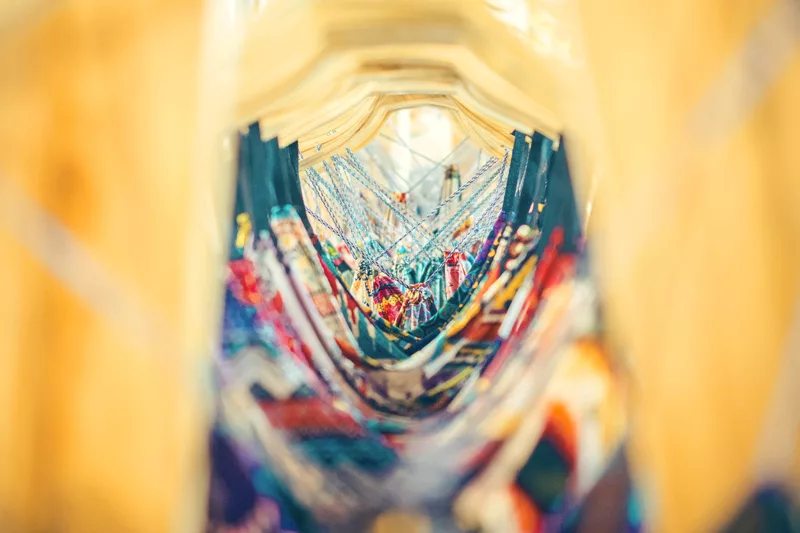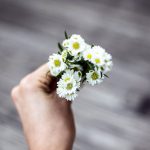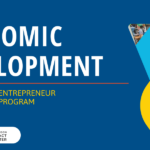
Amanda Pinelli
Amanda Pinelli is co-founder and Managing Director of CyclEffect Regenerative Ventures. She currently launching a textile division focusing on recycling, alternative yarns and holistic development of an ethical and sustainable supply chains. Leading up to the launch of CyclEffect, Amanda spent 15 years in luxury fashion in Milan and NY holding leadership positions focused on strategic development for International luxury houses and local US based brands. Pinelli served as a panelist at our SOCAP 365 event Ethical Fashion Meets Global Markets this past March in NYC. We caught up with her to discuss CyclEffect, the fashion industry, and opportunities to create social and environmental impact within the textiles sector.
SOCAP: CyclEffect’s new model is designed to be disruptive. Can you describe the concept for us?
Amanda Pinelli: CyclEffect Regenerative Ventures is multi-stakeholder cooperative aggregating and deploying resources contributed by its member/owners into early stage circular initiatives in the sustainable textiles, regenerative agriculture and bio-energy sectors. To put it simply, it’s a way to bring like-minded, resource rich, game changers together into a collaborative ownership structure.
Owner/members patronize the cooperative by contributing human (management), intellectual (know-how, networks, research, assessment/measurement tools, expertise) and financial capital, or by utilizing the services provided by the cooperative. While the role of the cooperative is to serve as the platform to generate and deploy resources, investment capital is raised and deployed by a sub-entity fund in which the Cooperative participates.
Can you illustrate how it works in practice?
AP: In the textile sector, for example, we will find that there are numerous ideas, technologies and initiatives offering ethical and sustainable solutions (alternative dying methods, chemical and mechanical textile recycling, sorting technology, waste to value inputs into textiles, restoring damaged textiles, natural dyes, closed loop fiber production, fair trade sewing/manufacturing, organic cotton, etc.) We are building a portfolio of strategically aligned companies led by entrepreneurs/owners who recognize the uniqueness of our time, being in transition from an extractive/exploitive system to a circular/regenerative one, and who acknowledge they are part of something much bigger than any one person or one company on its own.
CyclEffect invests in early stage circular solutions but as part of that deal, we provide membership in the cooperative, so we have the entrepreneur receiving human, intellectual, and financial capital into its organization while also becoming a co-owner of an aligned ecosystem of initiatives creating incentivized/co-invested value chain.
You mentioned you have a set of criteria in place that you’re looking for when vetting these companies. In terms of the textiles companies, can you give an example of the criteria that you’re looking for?
AP: In assessing opportunities we seek to meet CyclEffect’s core values: to eliminate waste, honor and sustain all life, and to innovate beyond “less bad” or neutral impact to regenerative impact. In addition, strategic alignment within the portfolio is critical to our model, so we are not getting involved in one off siloed endeavors, rather we are building an interconnected ecosystem of solutions.
You come from a background of 15 years in Strategic Development for international luxury houses in Milan and New York. How did you see this challenge as being one that you wanted to help create a solution for?
AP: While I was in leadership positions within those companies, I started to feel like we were all playing an outdated game. This is a game of, “who can make it cheaper?” or “Who can do a better ad campaign?” I originally got into the industry with a desire to make brands financially sustainable and had a deep appreciation for design as a form of art. Even luxury fashion houses now have such excessive demands on them to churn out collections at a pace which really doesn’t allow for the creativity I think we once were privileged to experience.
With the birth of second lines we saw production start to slip into Romania and Turkey from Italy, then with the intense competition in the contemporary market, we saw production slip to China. Now with the birth and boom of fast fashion, i.e. socially acceptable designer knockoffs, production and sourcing teams are squeezing every last penny of cost to meet margin requirements, and now we have created a monster.
It’s not simple to fix, its not like we can just ask fast fashion to make less of a first margin and everything will be fine – a culture has developed, an expectation of cheap clothing, huge work forces in Bangladesh and Vietnam working in inhumane conditions as the norm and what has, to an extent, become acceptable. So, I suppose the combination of the shift of the industry and culture is what raised my awareness to the realities and indeed, once I looked, it was like opening pandora’s box and there was no turning back.
Part of it was becoming a mother and seeing the reflection from your little kid, and just thinking about the future that you want for them, and for them to be proud about what you do. By happenstance, I met the woman who is the co-founder of Nomi Network and I ended up volunteering for them and eventually joined the Advisory Board. Nomi Network works with women in India and Cambodia that are at risk of or have been rescued from human trafficking. They provide these women vocational training, and the ability to write their names and to develop a skill. Right now, that skill is in sewing so they can work in factories run on fair trade principles.
By being exposed to this organization I learned the truth around the realities that exist in our modern world where often families are selling their children into trafficked conditions, or they’re volunteering because they don’t actually recognize or are told they don’t have any other value. I cannot accept that such conditions exist today when we have the ability to share information, educate, monitor and effect change. So from there I naturally aligned my experience in the industry with addressing what I see has a huge opportunity to create a new reality and a new standard in the future of fashion.
Is there a particular call-to-action that you would issue to people in the SOCAP Community?
AP: Absolutely. First, is to know that there is a huge opportunity in this sector. The fashion industry has been quoted as being the second largest polluting industry in the world. For example it takes 20,000 liters of water to make one pair of jeans and one t-shirt. We see cotton farmers are suffering so much that they are committing suicide, and wastewater from textile production and dying is being dumped into rivers are ruining family farm lands devastating those totally unrelated to the industry…it goes on….this last week was the 4th anniversary of the Rana Plaza collapse in Bangladesh where 1137 people were killed who were forced to enter an unstable sewing factory. We want to see an end to this madness with urgency.
We created CyclEffect as the platform to accelerate this change via collaboration and de-risked investment. There are several ways to get involved: if you are currently operating in the circular economy and have a particular know-how, network, or other resources to contribute we’d love to explore industry membership; if you have limited time to participate but want to be involved as an advisor then we could explore limited membership, and, indeed, we are raising funds to invest in these circular initiatives.
For some time now, I have believed that our society was due for a renaissance, if you will. We have moved so far into industrialization, de-personalization, consumption of goods that hold no long term value, reality TV shows, and blatant disconnection from nature, that we are not honoring our natural state of interconnectivity with each other and our environment. CyclEffect Regenerative Ventures is a manifestation in enterprise form of a movement – a return to honoring all life – That’s a movement that I want to see happening.






